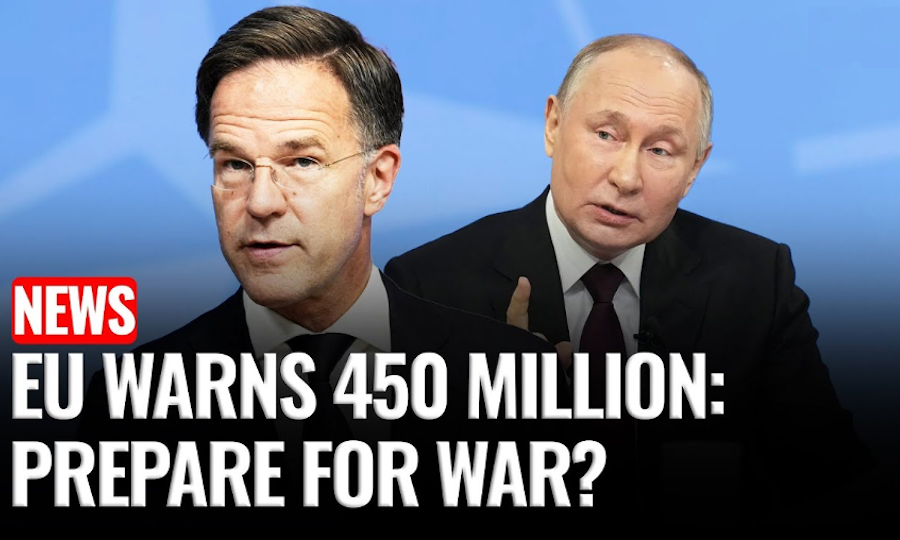China’s economy continues to grow steadily. In purchasing power parity (PPP) terms, it is by now the largest in the world. Its mobilisation of extraordinary resources to break out of underdevelopment and become a science and technology superpower appears to be paying substantial dividends, with the country establishing a clear lead globally in renewable energy, electric vehicles, telecommunications, advanced manufacturing, infrastructure construction and more.
It is by far the global leader in poverty alleviation and sustainable development. Sanctions on semiconductor exports have not slowed down China’s progress in computing, and indeed have had an enzymatic effect on its domestic chip industry. The spectacular success of DeepSeek’s open-source R1 large language model indicates that the USA can no longer take its leadership in the digital realm for granted.
Meanwhile, the west’s attempts to ‘decouple’ from China economically have yielded precious little fruit. While a handful of imperialist countries have promised to remove Huawei from their telecoms network infrastructure, and while sanctions on Chinese electric vehicles mean that consumers in the west have to pay obscene sums for inferior quality cars, China’s integration and mutually-beneficial cooperation with the world has continued to expand.
China is now the largest trading partner of approximately two-thirds of the world’s countries. Over 150 states are signed up to the Belt and Road Initiative. China lies at the core of Brics and the Shanghai Cooperation Organisation.
US president Donald Trump’s tariffs were meant to coerce China into accepting the USA’s trade terms and to force other countries to unambiguously join Washington’s economic and geopolitical ‘camp’, thereby alienating China. Nothing of the sort has taken place. Even the normally supine European Union has denounced the tariffs and signalled its intention to expand trade with China.
In summary, the Project for a New American Century is not going well. Zbigniew Brzezinski famously wrote in his The Grand Chessboard: American Primacy and its Geostrategic Imperatives (1997) that “the most dangerous scenario would be a grand coalition of China, Russia, and perhaps Iran, an ‘anti-hegemonic’ coalition united not by ideology but by complementary grievances”.
Precisely such an anti-hegemonic coalition exists, and is uniting the countries of Asia, Africa, Latin America, the Caribbean and the Pacific in a project of building a multipolar future, thereby posing an existential challenge to the so-called ‘rules-based international order’ based on the principles of unilateralism, war, destabilisation, coercion and unequal exchange.
From cold war to hot war?
So far, so positive. But we mustn’t forget that “war is the continuation of politics by other means”. If imperialist policy is not having its intended effect, there is a very real risk that the US ruling class and its hangers-on will resort to outright war in pursuit of their hegemonic ambitions.
Political power grows out of the barrel of a gun, said Mao Zedong. And while the USA’s economic dominance may be waning, it still has an awful lot of guns with which to project political power. Donald Trump announced recently, as he sat next to genocidal-maniac-in-chief Benjamin Netanyahu in the White House, that the next US budget will assign a record-breaking trillion dollars to the military. This is more than three times China’s military expenditure, and approximately ten times that of Russia.
Meanwhile, the USA has over 800 foreign military bases, a stockpile of around 5,500 nuclear warheads, and vast deployments of troops and weapons around the world, increasingly concentrated in China’s neighbourhood.
Taiwan as the trigger
The flashpoint for a military attack on China would most likely be the Taiwan province, which has long occupied pride of place in the USA’s encirclement campaign.
Taiwan has been part of China for many centuries. It was seized by Japan in 1895 and returned to Chinese control at the end of World War Two, as agreed at the Potsdam conference. Defeated in the Chinese revolutionary war (1946-49), Chiang Kai-shek’s Kuomintang forces decamped to Taiwan and declared the island to be the true ‘Republic of China’.
It would have been quickly integrated into the People’s Republic but for the Harry Truman administration positioning the US Navy’s Seventh fleet in the Taiwan Strait in 1950, calculating that de-facto American control would bring significant strategic advantages, including the ability to maintain a permanent nuclear threat against China, the Soviet Union and the DPRK.
In the words of the criminal warmonger General Douglas MacArthur, Taiwan was to become the USA’s “unsinkable aircraft carrier” in the region, and the cornerstone of its ‘First Island Chain’ strategy – a collection of military bases, weapons and troops deployed specifically in order to contain and encircle the People’s Republic of China.
Undermining of the One China principle
Under the Shanghai communiqué, issued in 1972 on the last evening of President Richard Nixon’s historic visit to China, the United States acknowledged “that all Chinese on either side of the Taiwan Strait maintain there is but one China and that Taiwan is a part of China. The United States government does not challenge that position.”
As such the USA – along with 180 other countries – supports the One China principle and recognises the People’s Republic as the sole legal government representing the whole of China. However, the US imperialists have also maintained their close economic and military links with Taiwan, and have adopted a posture of ‘strategic ambiguity’ in their relations with the island.
In recent years, seeking to provoke conflict and undermine China, Washington has increased its support for Taiwanese separatists and ramped up its supply of weapons to the administration in Taipei.
Bipartisan consensus on escalation
US president Joe Biden stated multiple times – in clear contravention of the USA’s commitments and with no basis in international law – that the USA would intervene militarily if China attempted to use force to change the status quo concerning Taiwan.
In 2023, President Biden signed off on direct US military aid to Taiwan for the first time, with a BBC article observing: “The USA is quietly arming Taiwan to the teeth.” Then-Speaker of the House of Representatives Nancy Pelosi’s 2022 trip to Taipei was the highest-level US visit to the island in a quarter of a century.
In January 2023, US air force General Mike Minihan sent a memo to the officers under his command saying “my gut tells me” there will be a war between the USA and China in 2025, and that the trigger for that war would be Taiwan. The memo called on US armed forces to “be prepared for deployment at a moment’s notice” in order to enter a war in the Taiwan Strait and “defeat China”.
Republicans are no less bellicose on this issue. Mike Pompeo, Trump’s secretary of state from 2018-21, said in 2022: “The United States government should immediately take necessary and long overdue steps to do the right and obvious thing: that is to offer the Republic of China, Taiwan, America’s diplomatic recognition as a free and sovereign country.”
President Trump’s new cabinet is packed with notorious anti-China hawks such as Marco Rubio (secretary of state), Pete Hegseth (defence secretary), Mike Waltz (national security advisor) and Peter Navarro (senior counsellor for trade and manufacturing).
An internal guidance memo circulated by Secretary Hegseth in March called on the US military to “prioritise deterring China’s seizure of Taiwan and shoring up homeland defence”. A report in the Washington Post stated that the document “outlines, in broad and sometimes partisan detail, the execution of President Donald Trump’s vision to prepare for and win a potential war against Beijing”.
Incidentally, the memo also provided some useful context for the Trump regime’s moves towards extrication from the Ukraine conflict: since “China is the department’s sole pacing threat”, the “threat from Moscow” will have to be “largely attended by European allies”. In other words, the USA’s strategy constitutes a reiteration and deepening of the Obama-Clinton ‘Pivot to Asia’. (Secret Pentagon memo on China, homeland has Heritage fingerprints by Alex Horton and Hannah Natanson, 29 March 2025)
These escalations over Taiwan by successive US administrations are closely linked to the creation of the Aukus nuclear pact between the USA, Britain and Australia, as well as to the USA’s encouragement of Japanese rearmament and the establishment of four new US military bases in the Philippines – “a key bit of real estate which would offer a front seat to monitor the Chinese in the South China Sea and around Taiwan”. (US secures deal on Philippines bases to complete arc around China by Rupert Wingfield-Hayes, 2 February 2023)
This all adds up to accelerating preparations for war with China – a war with the objective of dismantling Chinese socialism, establishing a comprador regime (or set of regimes), privatising China’s economy, rolling back the extraordinary advances of the Chinese working class and peasantry, and replacing common prosperity with common destitution.
Needless to say, this would be disastrous not just for the Chinese people but for the entire global working class. The drive to war against China must be resolutely opposed.
















